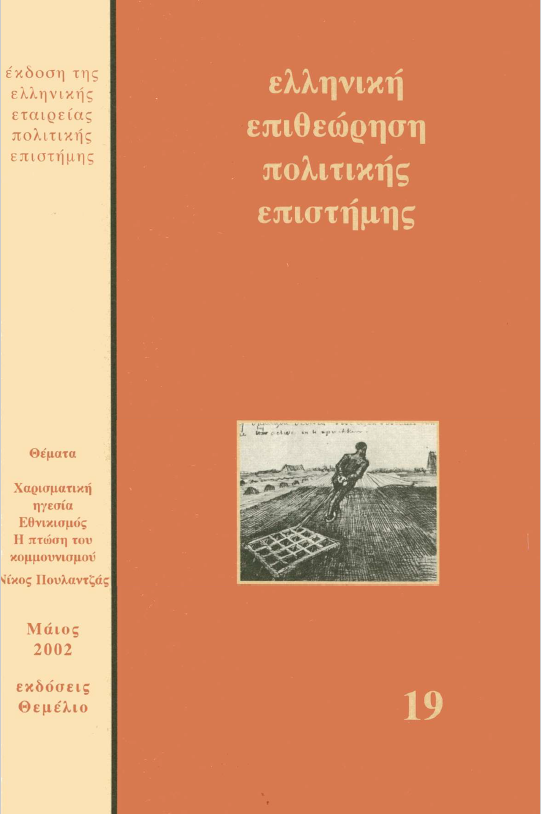Nation and Nationalism. A brief survey of the scientific debate
Abstract
The post-World War II decades have witnessed an increasing scholarly interest in the field of Nations and Nationalism and, following the national resurgence in numerous parts of the globe, the blossoming of a fervent academic debate. This article seeks to offer an introduction to the contemporary debate on these issues. It starts by delimiting the field itself and, then, turns to the existing theoretical approaches, grouped as Schools of interpretation, namely the Modernists, Primordialists, Perennialists, Ethnosymbolists, and Postmodenists. The basic arguments espoused by each School are discussed, along with their strengths and limitations, in an attempt to show the extent of their contribution to this lively and wide-ranging debate characterised by divergent views and rival explanatory accounts. Given the theoretical polyphony of the field, the article discusses the perspectives of this debate all the while attempting to propose a viable way by which these sharp disagreements could eventually be reconciled to the benefit of the research community as a whole. Finally, the debate is briefly considered in the light of the ongoing globalisation processes.
Article Details
- How to Cite
-
Χατζόπουλος Μ. (2017). Nation and Nationalism. A brief survey of the scientific debate. Greek Political Science Review, 19(1), 109–127. https://doi.org/10.12681/hpsa.14999
- Issue
- Vol. 19 (2002)
- Section
- Essays

This work is licensed under a Creative Commons Attribution-NonCommercial-ShareAlike 4.0 International License.
Authors who publish with this journal agree to the following terms:
Authors retain copyright and grant the journal right of first publication with the work simultaneously licensed under a Creative Commons Attribution licence that allows others to share the work with an acknowledgement of the work's authorship and initial publication in this journal.
Authors are able to enter into separate, additional contractual arrangements for the non-exclusive distribution of the journal's published version of the work (e.g. post it to an institutional repository or publish it in a book), with an acknowledgement of its initial publication in this journal.
Authors are permitted and encouraged to post their work online (preferably in institutional repositories or on their website) prior to and during the submission process, as it can lead to productive exchanges, as well as earlier and greater citation of published work (See The Effect of Open Access).



